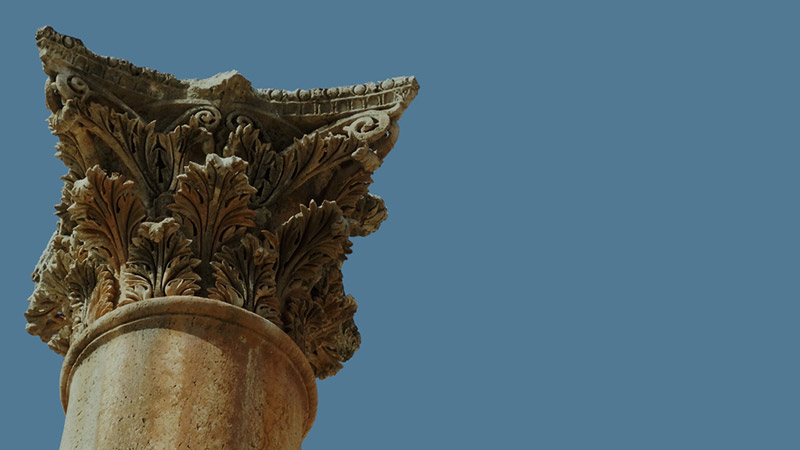Updating...
Showing 12 of 267

The City of SardisLocated on Mount Tmolus in southern Turkey, the city of Sardis stood at the crossroads of Asia Minor, the most prosperous, powerful, fertile, and pagan province of the entire Roman Empire. First-century Sardis had a unique blend ...
MORE
The Sea of Galilee is beautiful, but its calm, peaceful setting does not present a complete picture of ancient people's feelings toward it: Many biblical images related to the sea had very negative connotations.Jews were not seafarers; they were d...
MORE
The Seeds of RevoltThe Seeds After the Romans began their occupation of Judea in 64 BC, the Jews became divided on how to respond.The religious leaders, particularly the Pharisees, believed the Messiah would come from the Jewish people and make Is...
MORE
Shephelah is a Hebrew word meaning "low" and is usually translated "lowlands" or "foothills." The term refers to a twelve to fifteen-mile wide region in Judea, comprised of foothills that are located between the coast...
MORE
En Gedi is one of the oases around the Dead Sea. Sodom and Gomorrah would have looked like this oasis. High on the cliff above En Gedi, archaeologists discovered a pagan temple already old at the time of Abraham and Lot. Sodom and Gomorrah probabl...
MORE
God despised the Canaanite high places where pagan worship was carried out. His orders to the Israelites were to destroy them. Yet God communicated with his people through their culture. He allowed them to establish high places where he could meet...
MORE
Located on the main street between the theater and a sacred pool, this forty-by-sixty-foot temple was dedicated to the supposed god of light, Apollo. The entrance faced west and was approached by a broad flight of stairs.Beneath the Temple of Apol...
MORE
Built on the slope of the hill south of Ephesus and extending into the center of the city, this prominent temple could be seen from nearly everywhere in Ephesus, including the land and harbor entrances. The Ephesians, who built it to honor their e...
MORE
This spectacular theater was built during the Roman period in the Decapolis city of Beth Shean, known also by its Greek name, Scythopolis. It was more than 360 feet in diameter and seated over 7,000 people. As seen here, one tier of seats remains....
MORE
Herods' love of Hellenistic culture and his desire to introduce it to the Jewish nation is illustrated clearly by the theater at Caesarea. Apparently, this structure was built outside the city because its obscene and bawdy performances may have cr...
MORE
In the world of the early believers, the theater was a significant institution for communicating the Hellenistic view of the world. Every major city in the Roman world had a theater, and the theater in Ephesus was spectacular. The Greek king Lysim...
MORE
The first-century theater of Hierapolis, one of the best-preserved theaters in Asia, clearly demonstrates the city's sophistication at the time Epaphras founded a church there. The carvings below the stage, which was twelve feet high, are in remar...
MORE